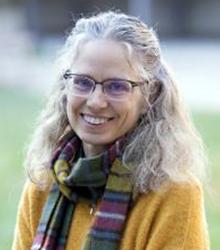
Karrie Walters
Biography
Karrie P. Walters is core faculty in the CPHS department, teaching across undergraduate, masters and doctoral programs. A licensed psychologist, she specializes in psychological assessment for neurodevelopmental disorders (ADHD, Learning Disability and Autism), complex differential diagnosis, child/family interventions and clinical training. In her work with students, Karrie regularly translates current research to applied practice, integrating her 25 years of clinical experience with current best-practice, offering robust training experiences to her undergraduate and graduate students in the department of Counseling Psychology and Human Services.
Karrie received her Masters in Special Education from the University of North Texas and her doctoral degree in counseling psychology in 2010 from the University of Oregon. She received additional internship and post doctoral training through OHSU's CDRC Eugene clinic. Karrie has worked with children and families in educational, social work and community counseling environments for over 25 years, providing a wide range of services, such as behavioral consultation in schools, intensive family therapy and comprehensive diagnostic evaluations.
Karrie served as the doctoral practicum clinical director for the Child and Family Center from 2011 - 2015. In 2017 she founded the HEDCO Comprehensive Diagnostic Assessment Clinic (CDAC), providing advanced clinical training in comprehensive neurodevelopmental assessment to doctoral students across multiple programs, including counseling psychology, school psychology and clinical psychology. CDAC offers strength-based comprehensive evaluations for a range of Neurodevelopmental Disabilities, including Attention-Deficit Hyperactivity Disorder (ADHD), Learning Disabilities (including dyslexia, dyscalculia and dysgraphia) and Autism.
Finally, Karrie is actively involved in curriculum and program development for the undergraduate Family and Human Services program, which prepares students for future careers in human service practice and research, including prevention science, social work, community development and counseling. She also regularly provides workshops and offers consultation in best practices in working with lgbtq youth and families.
Education
PhD, 08/2010 Counseling Psychology, University of Oregon
MA, 05/2001 Counseling and Student Personnel Psychology, University of Minnesota
MEd, 08/1997 Special Education: Emotional/Behavioral, University of North Texas
BA, 05/1996 Psychology, University of North Texas
Honors and Awards
2023 Distinguished Teaching Award, College of Education
2022 City Club of Eugene; one of ten community members chosen to offer a ‘gift’ to the city in honor community contributions
2008 Donald and Darel Stein Graduate Student Teaching Award, University of Oregon
2006 Nontraditional Student Award, University of Oregon
2006 Nominee, Graduate Teaching Fellow Teaching Award, University of Oregon
2005 Nominee, Commitment to Community Award, LGBT Educational and Support Services Program, University of Oregon
Publications
SELECTED PUBLICATIONS
McWhirter, A.C. & Walters, K.P. (2024) The development of ecologically integrated and culturally informed ADHD and SLD diagnostic tools for doctoral assessment training, Disabilities, 4(3), 583-615.
Walters, K.P. (2016) Instructors Manual. A supplement for D. Capuzzi & D. Gross (Eds.), Youth at risk: A prevention resource for counselors, teachers, and parents. (7h ed.)
Walters, K. P., & Kerewsky, S. D. (2014). Facing “The Squeeze”: Ideas for successfully managing fiscal-driven expansion of a human services program. National Organization for Human Services 2014 Annual Conference Proceedings
McWhirter, B.T. & Walters, K.P. (2007) Preventing and Treating Depression in Children and Adolescents. In D. Capuzzi & D. Gross (Eds.), Youth at risk: A prevention resource for counselors, teachers, and parents. (5th ed.)
Walters, K.P. (2001). The Martial Arts: A conduit for conflict education. Women in the Martial Arts, 21, (1), 12-15.
Walters, K.P. (1997). Mind, body, and spirit: The benefits of the martial arts for students with challenging behaviors. Reaching Today’s Youth, 2, (1), 30-33.
SELECTED PRESENTATIONS
Walters, K.P. (2021) Development of ecological integrated diagnostic tools for doctoral training. Presented at the Western Psychological Association 2021 Conference.
Walters, K.P. 2021 Restorying the narrative: Best practices in diagnosis and interventions for transgender and gender-creative youth and their families. Training workshop for Oregon Psychological Association. June, 2021
Walters, K.P. (2019) Ethics and Social Justice Advocacy for Psychologists and Psychologist Organizations. Invited ethics workshop for LPCA and OPA members.
Walters, K.P. (2019-2024) A Look at Poverty and Implicit Bias: Essential Considerations for Court Advocates. Yearly invited presentation at the Court Appointed Special Advocacy training sequence, Eugene, Or.
Walters, K.P. (2017). Keeping up-to-date: Current best practices for working with Transgender/gender fluid children and their families. Presented at the Oregon Psychological Association State Conference.
Walters, K., Doyle, S.L., Dishion, T.J., Stormshak, E., (2011) Ecological Family Intervention and Treatment (EcoFIT)- Evidence Based Practices for Intervening in Adolescent Substance Abuse. Workshop presented at the 1st Annual Oregon Prevention Conference, Eugene, OR
Celiberti, D.A., Guarnaccia, C.A., Walters, K.P., Philbin, A.P. (1998). Needs assessment of siblings of children with autism: A national survey of families in the United States. Poster presented at the World Congress of Behavioral and Cognitive Therapies. (WCBCT), Acapulco, Mexico.
Research
Karrie's research and outreach interests include doctoral clinical training and supervision, best practices for lgbtq children and families, and ecologically based child and family interventions.
